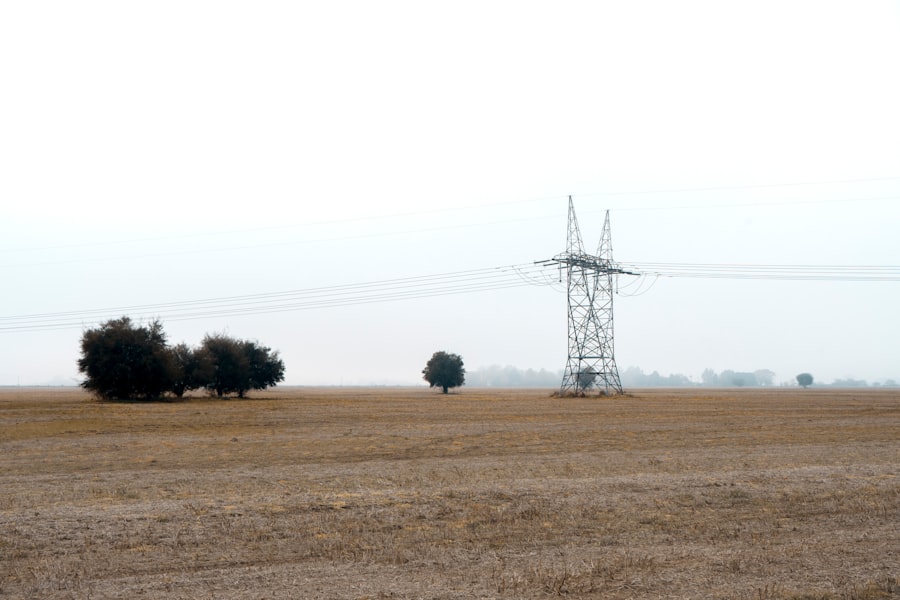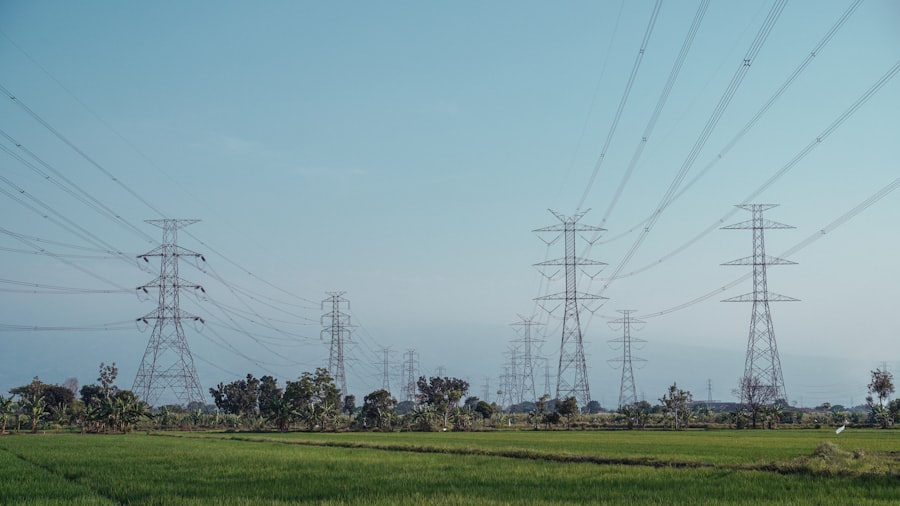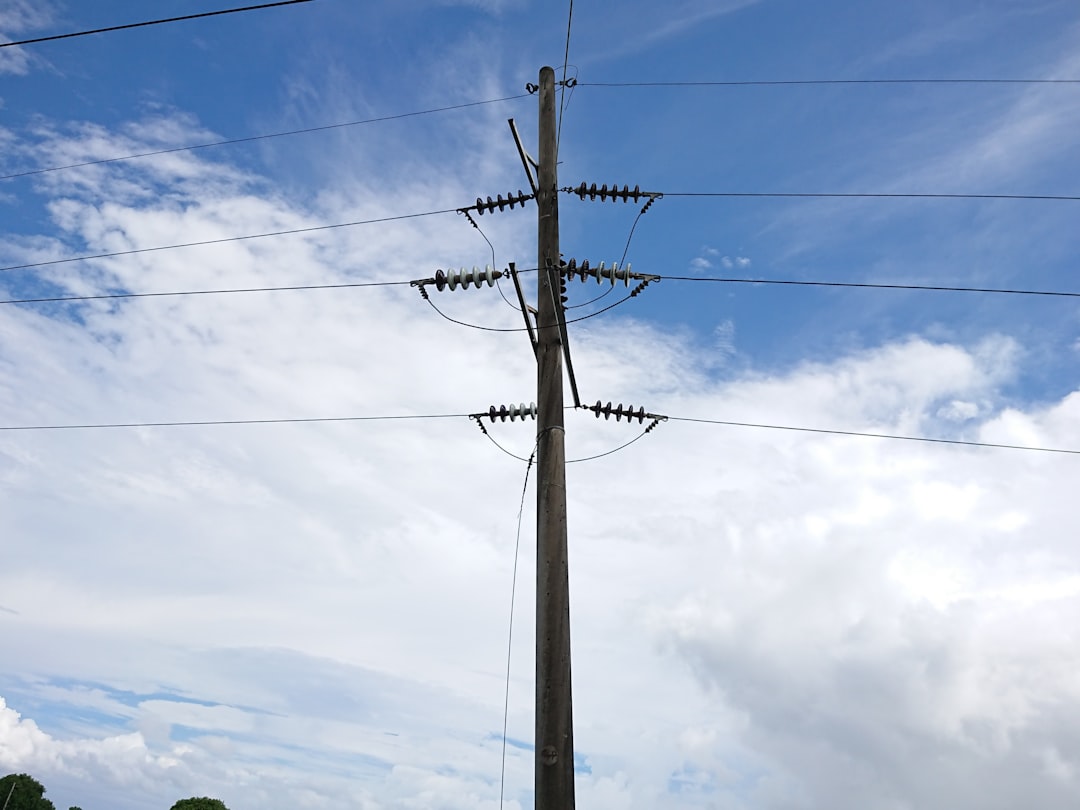The relationship between local governments and utility companies is often characterized by a complex power struggle that can significantly impact communities. Utility companies, which provide essential services such as electricity, water, and gas, wield considerable influence due to their monopolistic nature and the critical role they play in daily life. Conversely, local governments are tasked with representing the interests of their constituents, ensuring that these essential services are delivered fairly and equitably.
This dynamic creates a battleground where issues of regulation, consumer rights, and community welfare collide. As local governments strive to maintain oversight and protect the interests of their residents, they often find themselves at odds with utility companies that prioritize profit margins and shareholder returns. This ongoing conflict raises important questions about accountability, transparency, and the ethical responsibilities of both parties.
The power struggle is not merely a bureaucratic issue; it has real-world implications for the quality of life in communities, the economic stability of households, and the environmental sustainability of local ecosystems.
Key Takeaways
- Local governments play a crucial role in regulating utility companies to protect community interests.
- Utility companies significantly impact local communities economically, environmentally, and socially.
- Legal and regulatory challenges complicate local governments’ efforts to ensure fairness and accountability.
- Public opinion and community activism are key drivers in shaping local government policies toward utilities.
- Successful case studies highlight effective local government strategies in managing utility company conflicts.
The Role of Local Government in Regulating Utility Companies
Local governments play a crucial role in regulating utility companies, acting as intermediaries between these corporations and the communities they serve. They are responsible for establishing guidelines that govern how utility services are provided, ensuring that rates are fair and that service quality meets established standards. This regulatory framework is essential for maintaining a balance of power, as it allows local authorities to hold utility companies accountable for their practices.
In many cases, local governments establish public utility commissions or similar bodies tasked with overseeing utility operations. These commissions have the authority to review rate increases, investigate service complaints, and enforce compliance with safety regulations. By doing so, they aim to protect consumers from potential abuses while fostering an environment where utility companies can operate sustainably.
However, the effectiveness of these regulatory bodies often depends on the political will and resources available to local governments, which can vary significantly from one jurisdiction to another.
The Impact of Utility Companies on Local Communities

Utility companies have a profound impact on local communities, influencing everything from economic development to public health. Access to reliable utility services is a fundamental aspect of modern life; without it, residents face significant challenges in their daily activities. For instance, reliable electricity is essential for businesses to operate efficiently, schools to function effectively, and healthcare facilities to provide necessary services.
When utility companies fail to deliver on these fronts, the repercussions can be felt throughout the community. Moreover, the pricing structures set by utility companies can disproportionately affect low-income households. High utility bills can strain family budgets, leading to difficult choices between paying for essential services and other necessities like food or healthcare.
Local governments must navigate these challenges while advocating for policies that promote equitable access to utilities. This often involves negotiating with utility companies to ensure that rates are fair and that assistance programs are available for those in need.
The Battle for Fairness: How Local Government is Advocating for Consumers
| Metric | Description | Value | Year |
|---|---|---|---|
| Consumer Complaints Filed | Number of complaints submitted to local government consumer protection offices | 12,450 | 2023 |
| Resolved Complaints | Percentage of consumer complaints successfully resolved by local authorities | 78% | 2023 |
| Consumer Advocacy Programs | Number of programs initiated to educate and protect consumers | 35 | 2023 |
| Legislative Actions Taken | Number of new local laws or amendments passed to enhance consumer rights | 8 | 2023 |
| Consumer Awareness Campaign Reach | Estimated number of consumers reached through awareness campaigns | 150,000 | 2023 |
| Average Resolution Time | Average number of days to resolve consumer complaints | 21 | 2023 |
In the face of rising utility costs and service disparities, local governments have increasingly taken on the role of advocates for consumers. They recognize that many residents lack the resources or knowledge to effectively challenge utility companies on their own. As a result, local officials have begun implementing measures aimed at leveling the playing field.
This includes creating programs that educate consumers about their rights and options when dealing with utility providers. Additionally, local governments have sought to establish more robust consumer protection laws that limit rate increases and ensure transparency in billing practices. By engaging in public hearings and community forums, they provide a platform for residents to voice their concerns and experiences with utility services.
This grassroots approach not only empowers consumers but also helps local governments gather valuable data that can inform their regulatory strategies.
The Legal and Regulatory Challenges Faced by Local Government
Despite their efforts to regulate utility companies effectively, local governments often encounter significant legal and regulatory challenges. Utility companies frequently possess substantial legal resources and lobbying power, enabling them to contest regulations that they perceive as unfavorable. This can lead to protracted legal battles that drain local government resources and delay necessary reforms.
Moreover, the regulatory landscape itself can be complex and fragmented. Local governments must navigate a web of state and federal regulations that govern utility operations. This can create confusion and hinder their ability to implement effective oversight measures.
In some cases, state laws may preempt local regulations, limiting the authority of municipalities to act in the best interests of their residents. As a result, local governments must continually adapt their strategies to address these challenges while striving to protect consumer rights.
The Economic Implications of the Conflict Between Local Government and Utility Companies

The ongoing conflict between local governments and utility companies has significant economic implications for communities. When utility rates rise due to corporate profit motives or inefficient management practices, the burden often falls on consumers who may already be struggling financially. This can lead to increased poverty rates and economic instability within communities, as families are forced to allocate more of their income toward basic utilities.
Furthermore, high utility costs can deter businesses from establishing or expanding operations in a given area. Companies often consider the cost of utilities when making decisions about where to locate or invest. If a community is perceived as having high utility rates or unreliable service, it may struggle to attract new businesses or retain existing ones.
Local governments must therefore balance the need for fair utility rates with the economic development goals that drive job creation and community growth.
The Environmental Impact of Utility Companies and the Role of Local Government in Addressing it
Utility companies also have a significant environmental footprint, particularly in terms of energy production and resource consumption. The reliance on fossil fuels for electricity generation has raised concerns about air quality, greenhouse gas emissions, and climate change. Local governments are increasingly recognizing their role in addressing these environmental challenges by advocating for cleaner energy sources and sustainable practices within their jurisdictions.
In many cases, local governments have implemented policies aimed at promoting renewable energy initiatives or energy efficiency programs. These efforts not only help mitigate environmental impacts but also create opportunities for economic growth through green jobs and technologies. By collaborating with utility companies on sustainability initiatives, local governments can encourage a shift toward more environmentally responsible practices while ensuring that residents benefit from cleaner energy options.
The Importance of Transparency and Accountability in Utility Company Operations
Transparency and accountability are critical components of effective regulation in the utility sector. Local governments must demand clear communication from utility companies regarding their operations, pricing structures, and service quality metrics. When consumers have access to this information, they are better equipped to make informed decisions about their utility usage and advocate for their rights.
Local governments can implement reporting requirements that compel utility companies to disclose information about their performance metrics, financial health, and compliance with safety regulations. By fostering a culture of transparency, local governments can build trust with their constituents while holding utility companies accountable for their actions.
The Role of Public Opinion and Community Activism in Shaping Local Government’s Approach to Utility Companies
Public opinion plays a vital role in shaping how local governments approach their relationship with utility companies. Community activism can serve as a powerful catalyst for change, as residents mobilize around issues related to utility rates, service quality, or environmental concerns. When citizens voice their concerns through petitions, public meetings, or social media campaigns, they can influence local government priorities and actions.
Local officials often rely on public feedback to gauge community sentiment regarding utility services. Engaging with constituents through town halls or surveys allows them to better understand the challenges residents face and tailor their advocacy efforts accordingly. By fostering an environment where public opinion is valued, local governments can strengthen their position when negotiating with utility companies on behalf of their constituents.
Case Studies: Successful Examples of Local Government Taking on Utility Companies
There are numerous examples across the country where local governments have successfully taken on utility companies to advocate for consumer rights and improve service delivery. One notable case occurred in a mid-sized city where residents faced exorbitant electricity rates due to a lack of competition in the market. Local officials organized community forums to educate residents about their rights and mobilized them to demand action from the utility company.
Through persistent advocacy efforts, including public hearings and negotiations with state regulators, the city was able to secure a rate reduction for its residents while also implementing energy efficiency programs that benefited low-income households. This case illustrates how local governments can leverage community engagement and regulatory frameworks to effect meaningful change in the relationship between consumers and utility providers.
The Future of the Relationship Between Local Government and Utility Companies
As society continues to evolve in response to technological advancements and environmental challenges, the relationship between local government and utility companies will likely undergo significant transformations. The push for renewable energy sources and smart grid technologies presents both opportunities and challenges for local governments as they seek to regulate these emerging trends effectively. Moreover, as communities become more engaged in discussions about energy policy and sustainability practices, local governments will need to adapt their strategies accordingly.
Building collaborative partnerships with utility companies may become increasingly important as both parties work toward common goals related to consumer welfare and environmental stewardship. In conclusion, the power struggle between local government and utility companies is multifaceted and deeply impactful on communities across the nation. As local officials continue to advocate for consumer rights while navigating legal challenges and economic implications, they play an essential role in shaping a fairer future for all residents reliant on these vital services.
Local governments across the country are increasingly taking a stand against utility companies to protect their communities from rising costs and inadequate services. A recent article discusses various strategies that local officials are employing to negotiate better terms and ensure that residents have access to reliable utilities. For more insights on this topic, you can read the article here: How Wealth Grows.
WATCH THIS! The Debt Trap: Why Private Equity Wants Your Power Company
FAQs
What are the common reasons local governments fight utility companies?
Local governments often challenge utility companies over issues such as rate increases, service quality, infrastructure maintenance, environmental concerns, and the terms of franchise agreements.
How do local governments regulate utility companies?
Local governments regulate utility companies through franchise agreements, zoning laws, service standards, and sometimes by setting rates or requiring public hearings on rate changes. They may also collaborate with state public utility commissions.
Can local governments take legal action against utility companies?
Yes, local governments can file lawsuits against utility companies for violations of contracts, failure to meet service obligations, environmental damage, or non-compliance with local regulations.
What role do public utility commissions play in disputes between local governments and utility companies?
Public utility commissions (PUCs) are state-level regulatory bodies that oversee utility rates and services. They often serve as mediators or decision-makers in disputes, ensuring that utility companies provide fair rates and reliable service.
Are local governments able to create their own utility services to compete with private companies?
In some cases, local governments establish municipal utilities to provide services like electricity, water, or broadband, offering an alternative to private utility companies and increasing competition.
What impact do disputes between local governments and utility companies have on residents?
Disputes can affect residents through changes in utility rates, service interruptions, or delays in infrastructure improvements. However, local government actions often aim to protect consumer interests and ensure fair pricing.
How can residents get involved in local government actions against utility companies?
Residents can participate by attending public meetings, providing input during rate hearings, joining local advocacy groups, and communicating with elected officials to express concerns about utility services.
What are some examples of issues that have led to conflicts between local governments and utility companies?
Examples include disagreements over rate hikes, disputes over infrastructure upgrades, environmental compliance issues, and conflicts regarding the expansion of utility services into new areas.
Do local governments have the authority to approve or deny utility company projects?
Yes, local governments often have authority over land use and zoning, which allows them to approve or deny utility infrastructure projects such as power lines, substations, or pipelines within their jurisdiction.
How do environmental concerns factor into local government disputes with utility companies?
Local governments may challenge utility companies over environmental impacts like pollution, habitat disruption, or failure to comply with environmental regulations, seeking to protect local ecosystems and public health.
